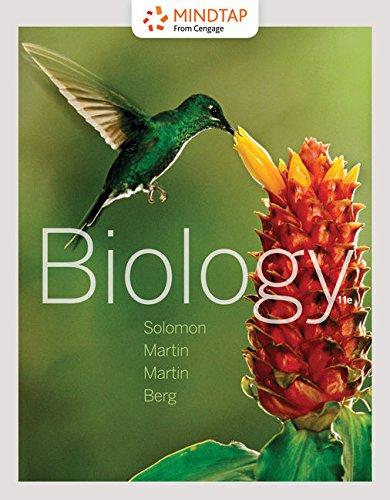
To determine: The effects of significant reduction of macrophages in the body.
Introduction: A complex network of cells, tissues, and organs that work collectively to protect the body and fight against the pathogens or foreign substances is called the immune system. Immune cells are the cells that actively participate in the defense mechanism initiated by the immune systems. One such major type of immune cells is lymphocytes.
To determine: Whether a significant decrease of macrophage or of memory B cells would have a greater effect on the immune system.
Introduction: A complex network of cells, tissues, and organs that work collectively to protect the body and fight against the pathogens or foreign substances is called the immune system. Immune cells are the cells that actively participate in the defense mechanism initiated by the immune systems. One such major type of immune cells is lymphocytes.
Want to see the full answer?
Check out a sample textbook solution
Chapter 45 Solutions
Mindtap Biology, 1 Term (6 Months) Printed Access Card For Solomon/martin/martin/berg's Biology, 11th
- Anwser these Discussion Questions: Part One Why were the plants kept in the dark prior to the experiment? Why is this important? Why is it important to boil the leaf? Explain why it was necessary to use boiling alcohol? What is the purpose of the iodine? Part Two What was the purpose of keeping the leaf in the dark and then covering it with a cardboard cut-out? What conclusions can you draw from this part of the lab? Part Three 7. In this experiment what was the purpose of adding the soda lime? 8. Why was a sealed bag placed around each plant? 9. What happened in the control plants? 10. What was the result on photosynthesis? Part Four 11. Why was a variegated leaf used in this experiment? !2. What conclusions can you draw about starch production in a variegated leaf?arrow_forwardHow did the color differences between the two bacterial species you used in this experiment help you determine if the streak plate method you performed was successful?arrow_forwardseries of two-point crosses were carried out among six loci (a, b, c, d, e and f), producing the following recombination frequencies. According to the data below, the genes can be placed into how many different linkage groups? Loci a and b Percent Recombination 50 a and c 14 a and d 10 a and e 50 a and f 50 b and c 50 b and d 50 b and e 35 b and f 20 c and d 5 c and e 50 c and f 50 d and e 50 d and f 50 18 e and f Selected Answer: n6 Draw genetic maps for the linkage groups for the data in question #5. Please use the format given below to indicate the genetic distances. Z e.g. Linkage group 1=P____5 mu__Q____12 mu R 38 mu 5 Linkage group 2-X_____3 mu__Y_4 mu sanightarrow_forward
- What settings would being able to isolate individual bacteria colonies from a mixed bacterial culture be useful?arrow_forwardCan I get a handwritten answer please. I'm having a hard time understanding this process. Thanksarrow_forwardSay you get AATTGGCAATTGGCAATTGGCAATTGGCAATTGGCAATTGGCAATTGGC 3ʹ and it is cleaved with Mspl restriction enzyme - how do I find how many fragments?arrow_forward
- Which marker does this DNA 5ʹ AATTGGCAATTGGCAATTGGCAATTGGCAATTGGCAATTGGCAATTGGC 3ʹ show?arrow_forwardThe Z value of LOD for two genes is 4, what does it mean for linkage and inheritance?arrow_forwardBiology How will you make a 50-ul reaction mixture with 2uM primer DNA using 10 uM primer DNA stocksolution and water?arrow_forward
 Human Heredity: Principles and Issues (MindTap Co...BiologyISBN:9781305251052Author:Michael CummingsPublisher:Cengage Learning
Human Heredity: Principles and Issues (MindTap Co...BiologyISBN:9781305251052Author:Michael CummingsPublisher:Cengage Learning Concepts of BiologyBiologyISBN:9781938168116Author:Samantha Fowler, Rebecca Roush, James WisePublisher:OpenStax College
Concepts of BiologyBiologyISBN:9781938168116Author:Samantha Fowler, Rebecca Roush, James WisePublisher:OpenStax College Human Biology (MindTap Course List)BiologyISBN:9781305112100Author:Cecie Starr, Beverly McMillanPublisher:Cengage Learning
Human Biology (MindTap Course List)BiologyISBN:9781305112100Author:Cecie Starr, Beverly McMillanPublisher:Cengage Learning Human Physiology: From Cells to Systems (MindTap ...BiologyISBN:9781285866932Author:Lauralee SherwoodPublisher:Cengage Learning
Human Physiology: From Cells to Systems (MindTap ...BiologyISBN:9781285866932Author:Lauralee SherwoodPublisher:Cengage Learning Medical Terminology for Health Professions, Spira...Health & NutritionISBN:9781305634350Author:Ann Ehrlich, Carol L. Schroeder, Laura Ehrlich, Katrina A. SchroederPublisher:Cengage Learning
Medical Terminology for Health Professions, Spira...Health & NutritionISBN:9781305634350Author:Ann Ehrlich, Carol L. Schroeder, Laura Ehrlich, Katrina A. SchroederPublisher:Cengage Learning





